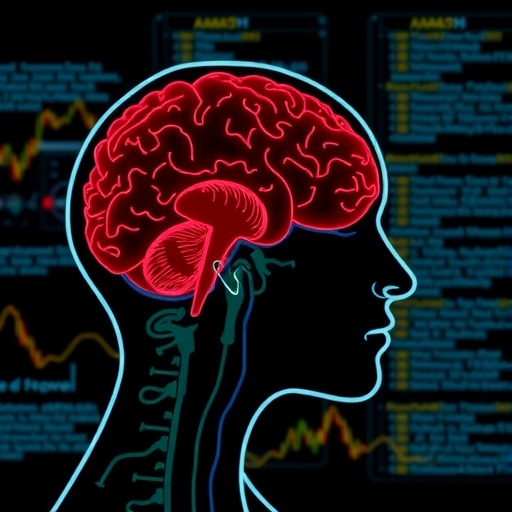In a groundbreaking advancement at the intersection of artificial intelligence and mental health, researchers have unveiled a novel methodological framework that harnesses machine learning to revolutionize trauma annotation within psychiatric health records. Published in Translational Psychiatry in 2025, this study unveils what the authors describe as a “gold standard approach” to accurately identifying and annotating trauma-related information embedded deep within unstructured clinical texts. This pioneering work stands to transform how psychiatric research and clinical care extract meaningful insights from the vast troves of narrative patient data traditionally considered intractable.
Psychiatric health records have long presented a unique challenge for computational analysis due to their heavily narrative nature. Unlike structured medical data, such as lab results or medication orders, clinical notes often contain nuanced, context-dependent descriptions of patient experiences, symptoms, and exposures. Trauma, as a multifaceted and sensitive component of a patient’s history, is particularly difficult to codify using conventional natural language processing (NLP) tools. This study confronts this complexity head-on by developing a machine learning pipeline customized explicitly for trauma annotation.
The core innovation rests in the creation of meticulously curated training datasets derived from psychiatric records, wherein domain experts manually flagged trauma mentions with unparalleled precision. This labor-intensive groundwork established a reliable “gold standard” corpus, overcoming a perennial bottleneck in NLP applications for psychiatry—that of insufficiently annotated data for supervised learning. By leveraging this rigorously annotated dataset, the team trained advanced machine learning models capable of detecting subtle and implicit trauma references that often elude simpler keyword-based or rule-based systems.
At the heart of the model’s architecture lies a sophisticated blend of transformer-based language models, fine-tuned on clinical text to appreciate semantic and contextual subtleties unique to mental health documentation. Such models can discern the nuanced ways trauma might be disclosed—whether explicitly, euphemistically, or embedded within clinical interpretations—and distinguish these from incidental or irrelevant mentions. The demonstrable performance gains highlight the power of combining clinical expertise with cutting-edge AI to tackle domain-specific challenges.
Beyond the technical achievements, this research underscores the critical importance of trauma as a determinant of psychiatric outcomes and treatment trajectories. Accurate extraction and annotation of trauma histories from health records enable large-scale epidemiological studies that quantify the impact of traumatic experiences across diverse populations. Moreover, these insights have the potential to personalize care by informing clinicians about risk factors that might not be readily apparent during consultations, thereby facilitating trauma-informed interventions.
The research team also tackled the thorny issue of data privacy and ethical governance, which looms large when processing sensitive psychiatric records with AI. They implemented stringent de-identification protocols and secured institutional oversight to safely utilize clinical documents for machine learning purposes. This approach sets an ethical precedent, balancing the imperative for scientific advancement with respect for patient confidentiality.
Importantly, the scalable nature of this method offers promise beyond the immediate ambit of trauma annotation. The framework could be adapted to systematically extract other critical psychosocial variables from clinical texts, such as substance use patterns, social determinants of health, or symptom trajectories. This capacity to mine complex health narratives will accelerate the emergence of precision psychiatry, where treatment regimens are guided by an intricate understanding of individualized risk profiles drawn from real-world data.
Interestingly, the study also reveals how trauma disclosures vary significantly across demographic and diagnostic groups, a finding made possible by the large-scale automated analysis enabled by the new annotation pipeline. These patterns not only enrich epidemiological knowledge but might also inform targeted prevention and outreach programs that address under-recognized vulnerable populations.
From a methodological perspective, the integration of expert-reviewed annotations with semi-supervised machine learning bridges the gap between human clinical insight and automated scalability. This hybrid approach remedies the inherent limitations of relying exclusively on either manual curation, which is time-prohibitive, or unsupervised models, which typically lack clinical fidelity.
Furthermore, the authors report that their model maintains robustness when applied across different psychiatric care settings and electronic health record systems, attesting to its generalizability. This versatility is especially crucial given the heterogeneity in documentation styles and terminologies across institutions, which often stifles cross-site NLP applications.
The implications for clinical research are profound. With trauma accurately mapped at scale, it becomes feasible to perform longitudinal studies examining the interplay between trauma exposure and psychiatric symptom evolution over time. Such insights could catalyze breakthroughs in understanding mechanisms underlying resilience and vulnerability in mental illnesses.
Despite these achievements, the authors acknowledge certain limitations, including residual annotation ambiguities inherent in the subjective nature of trauma reporting and the ongoing need for continual model retraining as clinical language evolves. Nevertheless, they emphasize the framework’s adaptability to incorporate new evidence and clinical vocabularies, promising sustained relevance.
This work arrives amid a larger paradigm shift as psychiatry increasingly embraces data-driven technologies to augment human judgment rather than replace it. By illuminating previously inaccessible dimensions of patient histories, machine learning tools like this trauma annotation pipeline exemplify the transformative potential of AI when integrated thoughtfully into healthcare.
Looking ahead, future research will likely focus on refining the interpretability of these models to foster clinician trust and uptake. Enhanced transparency in how AI systems arrive at trauma identification decisions will be critical in embedding such tools within clinical workflows.
In sum, this study pioneers a vital nexus of AI innovation and psychiatric care, delivering a methodological breakthrough that promises to reshape both research landscapes and clinical realities. As mental health challenges continue to escalate globally, innovations that amplify the extraction of meaningful clinical insights from complex data are indispensable—and this gold standard approach to trauma annotation is a landmark stride in that direction.
Subject of Research:
Article Title:
Article References:
Holderness, E., Atwood, B., Verhagen, M. et al. Machine learning in psychiatric health records: A gold standard approach to trauma annotation. Transl Psychiatry 15, 260 (2025). https://doi.org/10.1038/s41398-025-03487-0
Image Credits: AI Generated
DOI: https://doi.org/10.1038/s41398-025-03487-0
Keywords:




